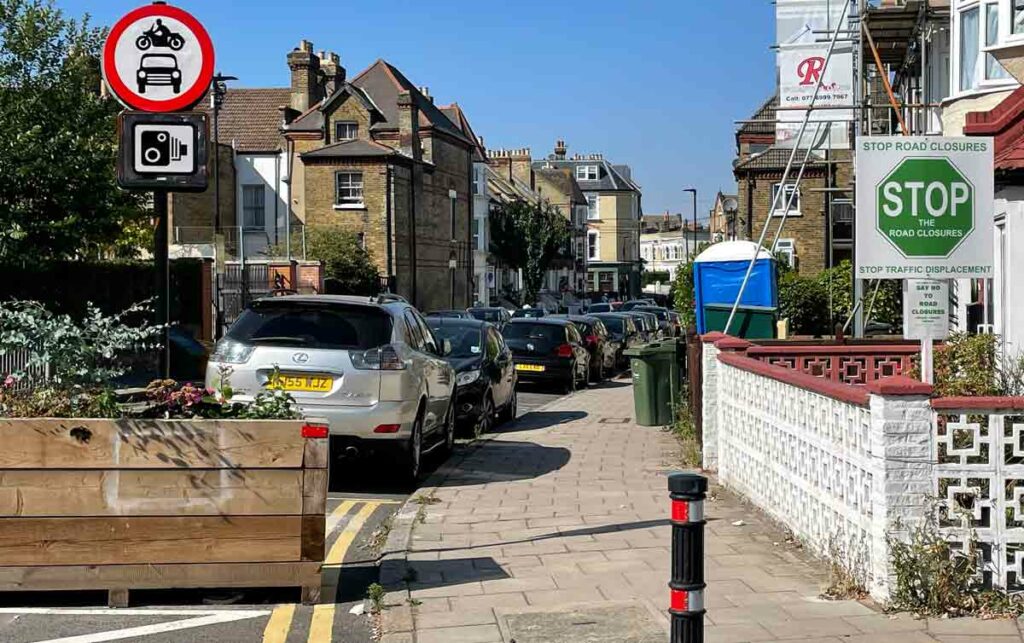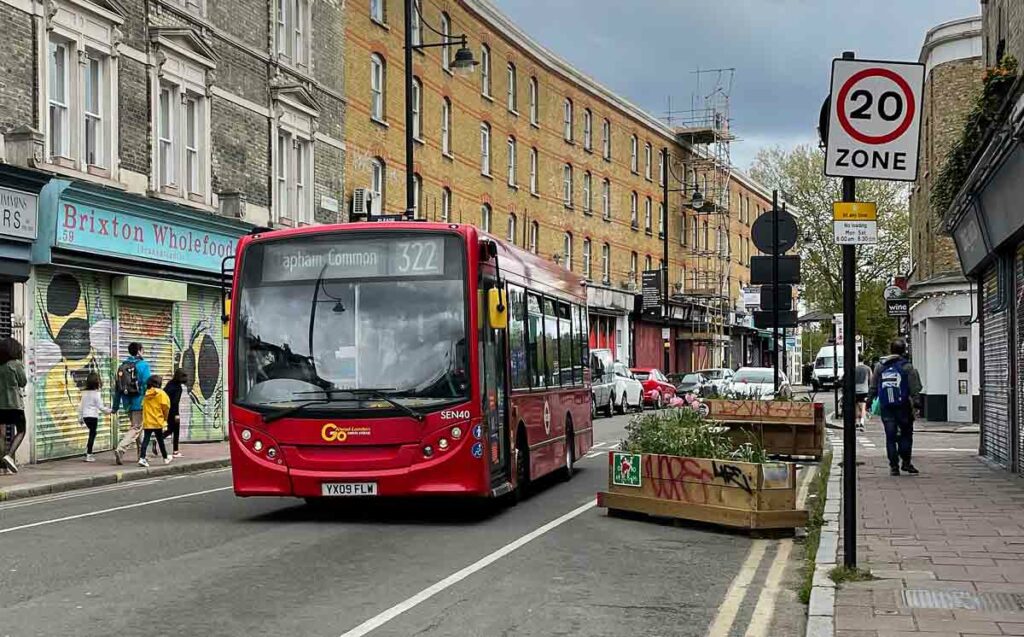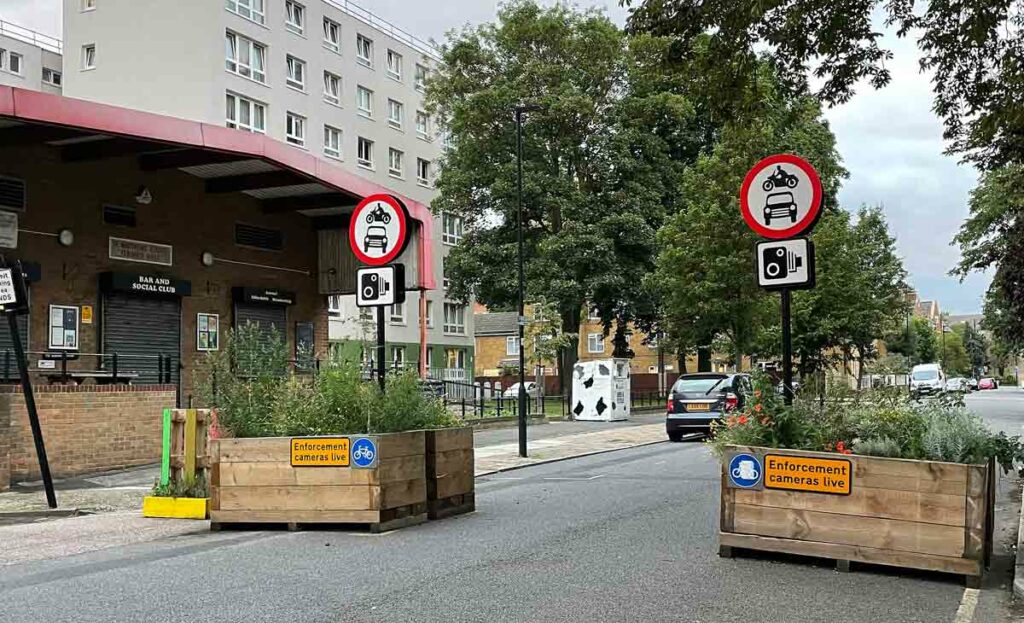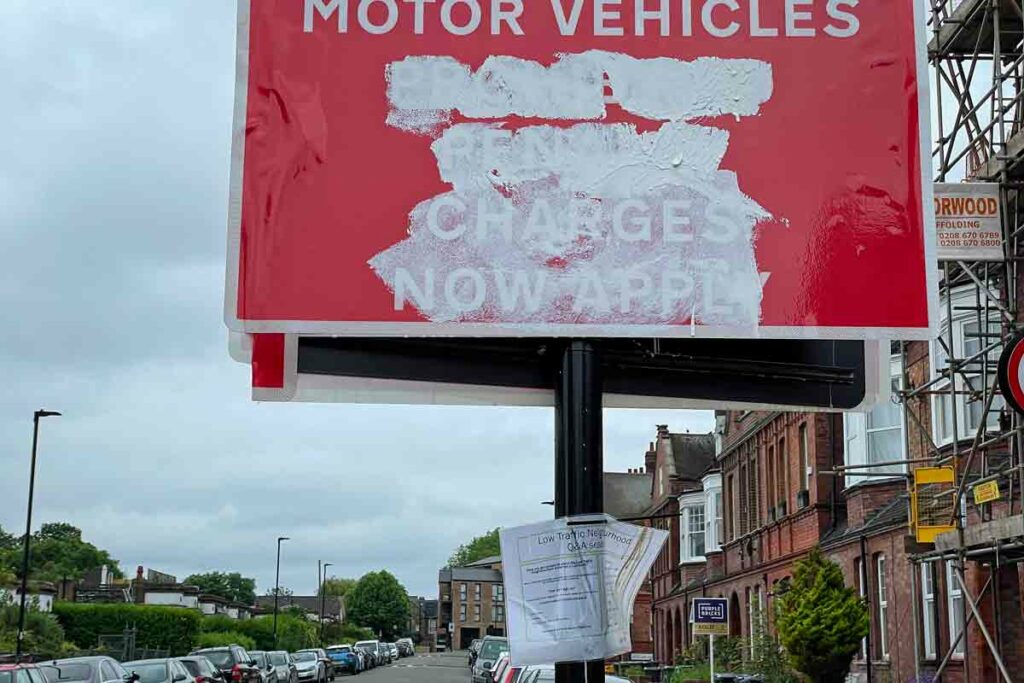
The Court of Appeal today (5 April) rejected an appeal against the High Court’s decision to refuse a judicial review of Lambeth council’s creation of low traffic neighbourhoods (LTNs).
The council said the judgement re-confirmed the High Court’s decision that the council had taken due regard of the equalities impacts of experimental low traffic neighbourhood schemes when it made the decision to implement them and that proper considerations were taken into account.
The decision related to traffic orders for three LTNs – Oval Triangle, Streatham Hill, and Railton and St Matthew’s.
A Lambeth council spokesperson said: “The low traffic neighbourhoods that the council has implemented are just one part of our holistic approach to making Lambeth’s roads and neighbourhoods healthier, safer and more equal.

“The majority of Lambeth residents do not have access to a car and that is particularly the case for many communities which are disproportionately impacted by collisions or toxic air pollution.
“Therefore, to make Lambeth a more equal place, we need to enable more journeys to be made by active and sustainable methods and fewer by motor vehicles so those effects lessen.
“Throughout the trial schemes we have engaged with residents and businesses thoroughly and have changed and improved them off the back of this feedback.
“We have also introduced dispensations for Blue Badge holders to make it easier for Lambeth residents who are reliant on their cars to get around.”

The appeal had challenged the decision by the High Court on 28 June last year to dismiss an application for a judicial review of Lambeth’s creation of low traffic neighbourhoods.
Judge Tim Kerr, at the same time as rejecting the application, granted permission for an appeal against the decision on the grounds of “public sector equality duty” (PSED).
Lambeth council created LTNs using “experimental traffic orders” (ETOs) under section 9 of the Road Traffic Regulation Act 1984.
Authorisation of the LTNs/ETOs was made in a delegated decision by an officer of the council on 9 October 2020, exercising the council’s statutory functions under the 1984 Act.
The appeal against the dismissal of the application for a judicial review contended that the council:
a) failed to comply with its PSED under section 149 of the Equality Act by failing to have “due regard” to matters specified in that section; and
b) failed to comply with its duty under section 122 of the 1984 Road Traffic Regulation Act to have regard to, and balance, matters in that section, including the expeditious, convenient and safe movement of traffic, and maintenance of reasonable access to premises.
The case was brought on behalf of Sofia Sheakh, who lives near the boundary of the Railton LTN. She is heavily reliant on car transport due to restricted mobility.
She said she has suffered disproportionately from the introduction of LTNs in Lambeth, because the displacement of traffic from inside the LTNs to the roads outside them leads to a build-up of traffic outside them and consequently increased journey times; added stress; and loss of quality of life.

She sought a judicial review and two statutory reviews (under paragraph 35 of Schedule 9 to the Road Traffic Regulation Act 1984).
The judicial review and statutory reviews were dismissed by Judge Kerr, who found that there had been enough consideration of equality objectives in the council’s October 2020 report to qualify as due regard to the legislative goals in section 149 of the 2010 Act and that the report included, legitimately, consideration of the point that the same equality objectives would be looked at further, in much more detail and with a sharpened focus, at later stages in the statutory process.
Judge Kerr concluded that it was acceptable in the specific facts of the case (the urgency due the pandemic), for the equality impact assessment to be conducted on a rolling basis.
The appeal hearing, which took place in January, can be viewed online.






